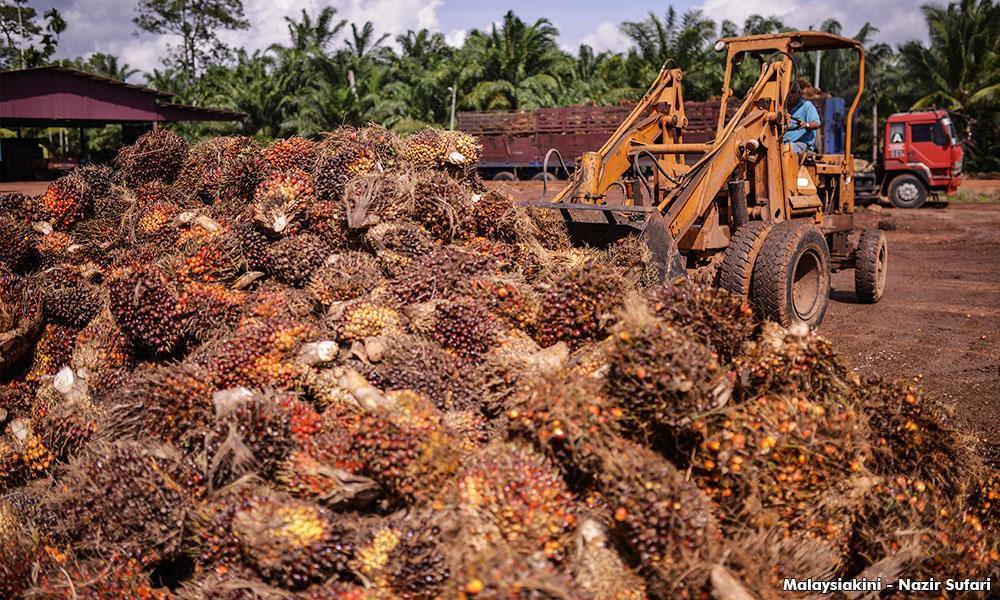
The Malaysian Palm Oil Association (MPOA) is proposing three wish list items for the government in its Budget 2020 to safeguard the wellbeing of the oil palm industry as well as the 650,000 smallholders while improving the country’s revenue from the agriculture sector.
Its chief executive Nageeb Wahab said the government should channel back the collection from the windfall tax into funds for the industry, allow a higher intake of foreign workers (to optimise oil palm yields) as well as standardise the property assessment tax incurred by the plantations.
“Since the imposition of the windfall tax on the industry on July 1, 2008, the oil palm plantation companies have paid between RM6 billion to RM7 billion to the government.
“It goes directly to the government’s coffers. For example, in 2017 alone, when the palm oil price shot up to RM2,800 per tonne on average, the industry paid the government RM1.2 billion,” he told Bernama.
Nageeb noted that under the current economic uncertainty, the industry is aware that it cannot ask the government for new subsidies or funds but insists on having the windfall tax collected to be channelled back to the industry.
“We have tried asking the previous government but now we are again asking the present government for consideration,” he said.
According to him, the collection from the windfall tax could also be used to promote the B10 and B20 biodiesel mandate in the domestic market which will help to increase domestic consumption.
On this note, he suggested that the government emulate the initiative of Indonesia, which imposes a tax on crude palm oil (CPO) exports of US$50 (per metric tonne) and US$30 (per metric tonne) on processed palm oil products exports.
Proceeds from these export levies would then be used to fund the government’s biodiesel subsidy programme.
“We may not have to follow their method and instead utilise funds collected from the windfall tax as an example,” he said.
A windfall tax is a tax levied by governments against certain industries when economic conditions allow those industries to experience above-average profits.
Currently, the oil palm industry in Malaysia is subject to a windfall tax, with oil palm planters in Peninsular Malaysia paying a windfall levy of 15 percent if the palm oil price is above RM2,500 per tonne.
Planters in Sabah and Sarawak, however, pay this levy at a lower rate of 7.5 percent if the price crosses RM3,000 per tonne but have to comply with a separate sales tax of 7.5 percent (Sabah) and five per cent (Sarawak).
MPOA, according to Nageeb, is also hoping that the government would also allow and assist local plantation companies to hire more foreign workers as harvesting of fresh fruit bunches (FFB) is still being done manually in the absence of machines or equipment that is proven to be economically viable.
He also urged the government not to impose the multi-tier levy system on employers.
“The locals especially the younger generation do not want to work in the plantation industry... they deem this industry as a 4D - dangerous, difficult, dirty and demeaning - industry.
“So even though we provide all the necessities such as houses, water supply, electricity, transportation and even cooking oil and rice, we still can’t attract Malaysians, so we are left with no choice but to hire foreign workers,” he elaborated.
Nageeb said currently 85 percent of the workers in the plantation industry are foreigners, mainly from Indonesia.
Bangladeshi and Nepalese, Indian and Myanmar workers are also adapting well to the industry.
This number is increasing year-by-year, he said, adding that the shortage of workers results in at least a 10 percent lower yield, impacting the cost and bottom line for the companies involved.
“About 50 percent of Malaysia’s plantation areas are located in Sabah and Sarawak and in these states, the labour shortage is even more acute, which could easily result in a crop loss of 20 per cent of the potential yield,” he said.
He also urged the government to standardise the property assessment tax in all states.
“There should be a standardised tax collected in each state and not one state charging a five per cent tax while another state charges a 10 percent tax. We are willing to pay but give us a standardised tax and a reasonable amount of tax,” he added.
Currently, the local oil palm plantation sector has to pay several taxes including corporate tax, windfall profit levy, property assessment tax, export duty on CPO, cess for research and development, regulation and promotion, foreign workers' levy, Sabah sales tax, Sarawak sales tax and Sarawak land tax.
Some 35 to 40 percent of companies’ pre-tax profit goes to the government as taxes. MPOA represents 118 plantation companies, which account for 1.87 million hectares or 40 percent of the total planted oil palm area in the country.
Its members include the plantation sector’s big boys such as Kuala Lumpur Kepong, FGV Holdings Bhd, Sime Darby Plantation Bhd and IOI Bhd.
- Bernama



No comments:
Post a Comment
Note: Only a member of this blog may post a comment.